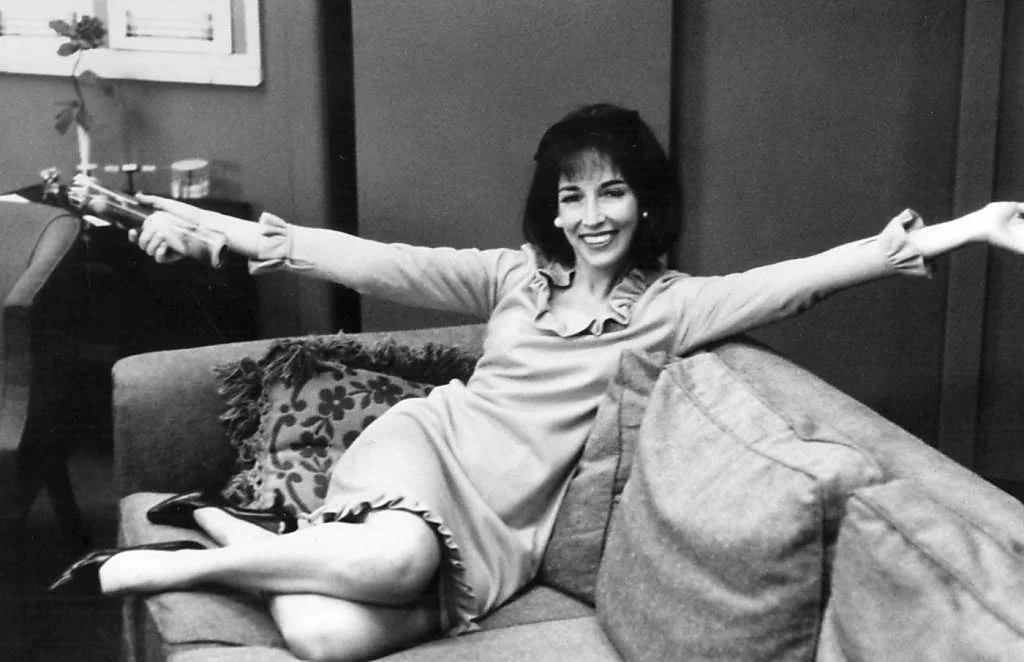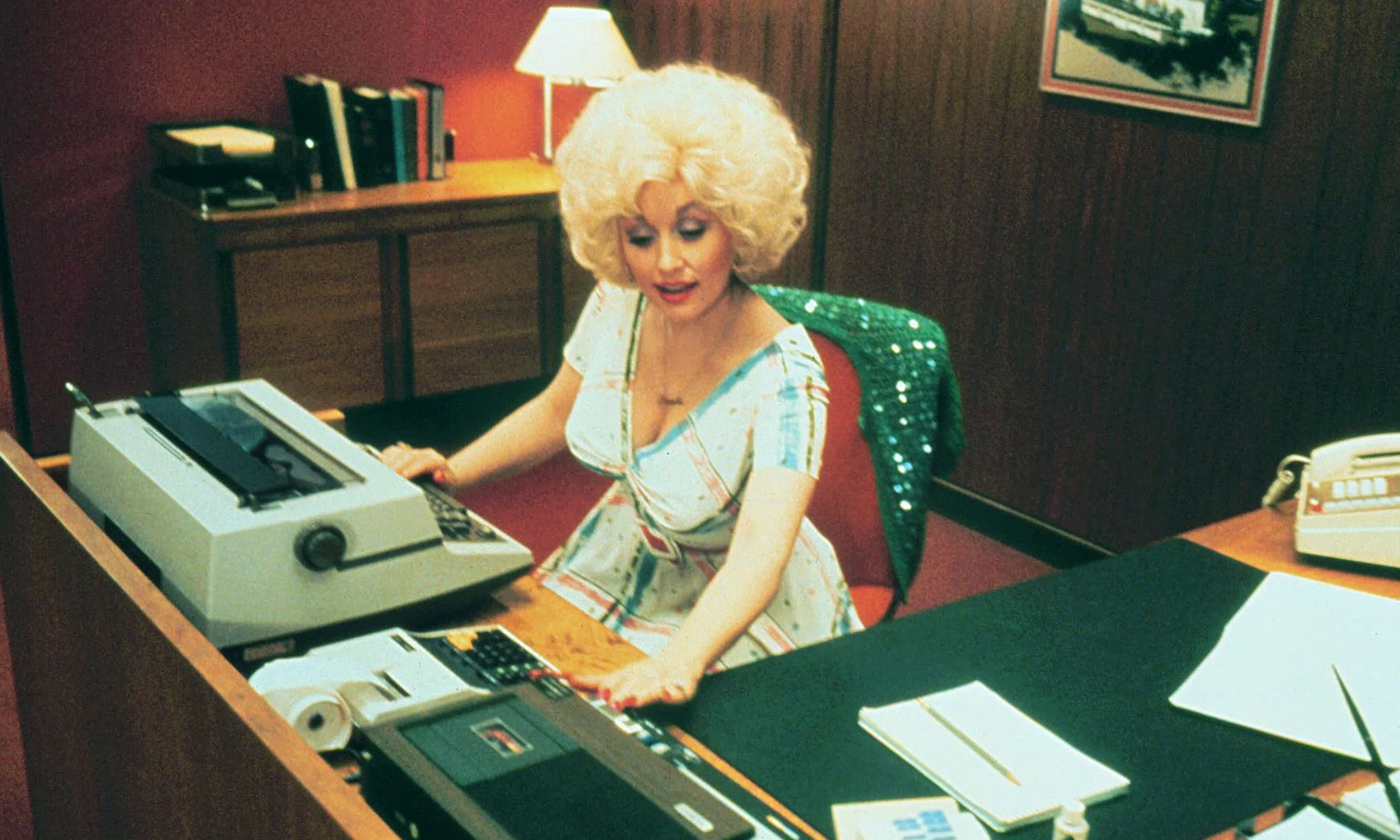
Having It All: How to Mouseburger My Way to the Top
“Why, really, should you listen to or do what I say?” It's as though Helen is reading my mind. As a response she tells us about the time that she was visiting Martha’s Vineyard with her husband back in the late 70’s when she “saw a rather pretty girl – twenty-two perhaps,” sun tanning on a dock. “She had a nice body, long legs. . . I studied her – the face isn’t as good as the body, I decided. . . nose a little big, eyes a little small, mouth a bit thin. Nice girl, nothing special.” Helen wondered if this poor disadvantaged girl would have a chance with any of the rich and famous men who frequented Martha’s Vineyard. “She would have a chance as a hanger-on, I decided . . . a little cookieburger that one of these men might take on for an evening.” But Helen knew that if she had her chance to impart her wisdom that this girl could “have her man – a good and “heavy” one . . . as well as a place in the sunshine which will make people listen to her and not reject her because she looks only okay but not great.”
Photo: Hearst Corporation
“Why, really, should you listen to or do what I say?” It's as though Helen is reading my mind. As a response she tells us about the time that she was visiting Martha’s Vineyard with her husband back in the late 70’s when she “saw a rather pretty girl – twenty-two perhaps,” sun tanning on a dock. “She had a nice body, long legs. . . I studied her – the face isn’t as good as the body, I decided. . . nose a little big, eyes a little small, mouth a bit thin. Nice girl, nothing special.” Helen wondered if this poor disadvantaged girl would have a chance with any of the rich and famous men who frequented Martha’s Vineyard. “She would have a chance as a hanger-on, I decided . . . a little cookieburger that one of these men might take on for an evening.” But Helen knew that if she had her chance to impart her wisdom that this girl could “have her man – a good and “heavy” one . . . as well as a place in the sunshine which will make people listen to her and not reject her because she looks only okay but not great.”
This is from a woman who admits in this chapter that during a press conference with Jimmy Carter she “couldn’t understand a lot of what he was saying. . . because [her] brain turns off at complex subjects!” And that “On Pearl Harbor day, December 7, 1941, the other secretary in my department at radio station KHJ heard the horrendous news, jumped out of bed like a little greased mosquito and went straight to the station. I heard the news, hadn’t a notion what Pearl Harbor meant to the world or radio station KHJ and went back to sleep.” She also admits to having “the wildest crush on Rupert Murdoch.” But still, there might be something to glean from these pages. Right?
This chapter is 63-pages of subsections with titles like, ‘A College Degree Isn’t That Important,’ ‘The Way to Dress for an Office Is Pretty,’ ‘Sexual Harassment Isn’t What It’s Cracked Up to Be,’ ‘Don’t Be Afraid that Success Will Defeminize You,’ and ‘Don’t Be Your Own Best Friend!’
She asks the reader – me – early on, “How old are you? Twenty-one? Thirty?” I wait for her to hand out some other options, but she tops out at thirty. Sure, let’s say I’m thirty. “We (you with me helping) are now going to begin the arduous task of mouseburging your way to the top. . . quietly, steadily getting there although at the moment you feel like nobody special, possibly even a mouse.” Let’s dive right in.
It turns out that the crux of this book – of the whole mouseburger plan – is our job. “Could we talk for a moment?” Helen asks us conspiratorially. Why sure Helen, of course, we can talk. “A beautiful secretary will be asked out; a beautiful account executive will have more impact on a man when she’s asked out and, if you aren’t beautiful, a serious job will bring you to more (good) men’s attention. . . most men have learned to love a doer rather than a dodo.” Helen spends much of the chapter bouncing between how a job will bring us great satisfaction and how it will help us find and keep a man – two things that are clearly meant to motivate us equally.
A quick note about contradictions – of which there are many in this book, only a few pages after telling us that secretaries won’t have much impact on a man, she tells us that “As a young actor, Marlon Brando dated studio secretaries almost exclusively. F. Lee Bailey, Yousuf Karsh, Allen Funt and dozens of other gifted men married their secretaries. I could go on!” We just have to politely overlook Helen’s inconsistencies otherwise our faith in her advice could be shaken.
Okay, down to the bones of this plan. “This is how it works: You get a man by dealing with him on his professional level, then stay around to charm and sexually zonk him. Yes, I know sex exists for us to feel good and enjoy ourselves, but you can feel very good and enjoy yourself like a sea otter and zonk him as well.” In an effort to add a little clarity to this statement – according to dictionary.com, ‘zonk’ means to hit or strike or to fall or cause to fall suddenly and heavily asleep or lose consciousness. When researching sea otter sexuality to better understand that reference I only found an article titled ‘Why Sea Otter Force Sex on Other Species.’
It became quite clear in the first chapter that Helen is what I would refer to as a ‘frenemy’ of other women, but here she really lets the claws come out – and mostly directs her ire at stay-at-home wives and moms. “Even lovely stay-homes, with incredible homes to stay in, closets full of Adolfos, and garages full of Mercedes-Benzes get left out in the garage with the Mercedes because they don’t have an identity aside from being somebody’s wife and mother. I’ve observed that the women who have as good jobs as their men get left less frequently. . .” I feel secure in the knowledge that Helen has really done her research before making these sweeping statements.
Much of this chapter focuses on minutely different aspects of women being concerned that men won’t find them attractive if they are successful. “As for your appeal to men, successful women have it. . . don’t even entertain any other idea! Why else are stay-at-home wives terrified of their men “staying at the office late” and spending time “on the road” with their female associates?” Well, Helen, these women may be afraid because of women like you – stay with me here.
It turns out that Helen a big proponent of – you guessed it – sex in the workplace. “The sexual you is part of the whole you and doesn’t snap off – God we hope not, anyway! – between nine and six.” Helen suggests we harness sexual tension we have with co-workers, “Trying to please somebody you’re nutty about can be productive.” And it turns out that Helen was quite productive in her work life. “With the exceptions of my present job at Cosmo, may I say I have never worked anywhere – and I’ve worked a lot of anywheres – without being sexually involved with somebody in the office. What else are office friends for?! . . . As for not sleeping with the boss, why discriminate against him?”
Speaking of bosses. Under a subsection titled ‘Sexual Harassment Isn’t What It’s Cracked Up to Be,’ Helen tells us that in the 40’s jobs were hard to come by and “you did not do anything to rebuff or offend a boss, even a horny one. . . but Jesus,” she exclaims, “I can’t remember anything really heavy or bad coming of it.” Um. What. Even typing this up I’m resisting the urge to wave my hands in the air and yell, “what the fuck! #metoo bitch!” But then she keeps going, as Helen often does. “One of my bosses at dear, staid Music Corporation of America used to ask me to come in on Sundays to “get rid of this extra work,” and he would chase me around his beautiful quiet office with all those fabulous antiques and sometimes catch me, but only for a few hugs and kisses. . . Was that so terrible?” Yes, Helen, that is fucking horrible. Granted she is describing something that happened in 1945, but – she’s using it to give advice to women in 1983! She’s not stopping the cycle, she’s the one with a big stick stirring it up so it doesn’t lose momentum. Just in case she wasn’t clear about her veiled insinuations about how women should handle unwanted sexual advances in the office, she lays it out for our little mouseburger brains. “Of the millions of naughty suggestions made by millions of male employers to their “defenseless” female employees yearly, I’d say half cheered the girls up, half brought the girls down, but probably nothing bad has come out of most of them.” I realize that being speechless isn’t the greatest quality when I’m trying to write – but rest assured that when I read this, all I could do was wave my arms around and gasp like a fish that has escaped Harvey Weinstein's aquarium.
Dolly Parton in 9-5. I'm just going to leave this right here.
I know we are all still reeling from that last section, but we are finally getting into the nitty-gritty of our biggest concerns. “What about getting masculine and flinty as you climb?” Again, many subsections are devoted to this topic. She tells us that “the way to dress for an office is pretty” and that she’s “never seen a woman held back in a job because of what she wore if her brain and drive and devotion were okay.” So, the only time that what you wear to the office would be considered inappropriate would be if your performance was subpar. Funny, I thought that was when you were supposed to bring out the ‘big guns’ – or ‘walk the puppies’ as my brother-in-law used to say. If you’re still afraid that your success will defeminize you, don’t worry, there is half a page of testimonials about how men don’t find their mother’s masculine, how you should never raise your voice at work, and how you get what you want in the workplace by “being stubborn – a very feminine trait.” Helen then concludes “the bigger job can only make you more desirable to most men. . . That is God’s truth.” She really went all in on that one.
“Okay, how long are you to carry on like a craven little nit, doing all that “pleasing” and all those grubby chores in whatever job you’re in?” Apparently, when it comes to moving up the corporate ladder, you don’t really have to be great because “Companies need to move along anyone who is movable and it’s happening more and more to women since Women’s Lib got after everybody.” It must have been so convenient for Helen to reap the rewards of a movement she didn’t care about - and publicly criticized. It would be like me having greasy McRib fingers when I hadn't even signed the petition to bring it back.
A Few More Highlights From this Chapter:
“Put vital statistics first – name, address, phone, age, marital status. Put job experience next . . . Education comes after that. . .List extracurricular activities next. . . If you look nice, send along a snapshot – preferably full length – to the hottest prospects.” While Helen herself had sixteen secretarial jobs in nine years, she says, “I simply eliminated eight jobs from my application form so they wouldn’t think I was a drifter!”
“Give answers and ideas quickly and it will save you from having to give terrific ones!” Phew! I’ll just shout out everything that comes to my mind in a meeting and then I’ll never be expected to actually have any good input. Well, that certainly sounds like the key to success!
“It’s Okay to “Borrow” Ideas from a Friend when You’re Stuck,” Helen tells us that her husband has written the cover blurbs for Cosmo for years and that the article ideas that he likes are the ones they assign. Scattered throughout the chapter she also tells us that he gave her the idea for her Sex and the Single Woman book – after his first wife didn’t write it and that it was his contacts that got her the job with Cosmo. It certainly sounds like having it all just means having a well-connected husband with great ideas. Incidentally, her husband, David Brown, was a movie producer who is best known for producing Jaws, Cocoon, and Driving Miss Daisy.
In a section titled “If You Have Daily Anguish from Things that Aren’t Your Fault, the New Isn’t All Bad” Helen asks, “Have you a rotten family, bad health, nowhere looks, serious money problems, a minority background, nobody to help you?” and then goes on a long list of example of successful people who have had challenges in their youth. Come one, anyone who has watched a Disney movie has learned this lesson – over and over and over.
“Now let’s move into the area of looking and feeling good. I know a lot about the latter, a little about the former – both good places to start a life-enhancing campaign.” I'm assuming that the next chapter, titled 'The Diet,' has a subsection titled 'How to Lose Weight and Get Your Lecherous Boss to Notice You.' Tune in next week as I continue my mouseburger journey to Having It All!
Missed the first chapter? You can catch up here.






